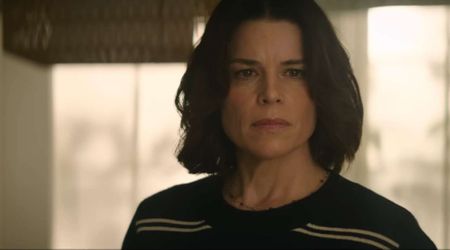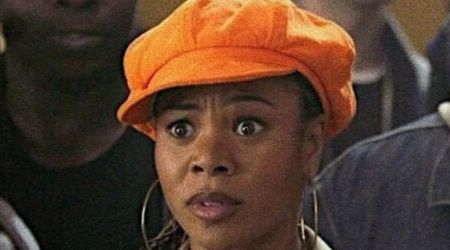EXCLUSIVE | 'All Day and a Night' actor Kelly Jenrette on judging Delanda, 'facing a reality' she'd never known

Netflix's 'All Day and a Night' takes us through the journey of young Jahkor 'Jah' Abraham Lincoln (Ashton Sanders) who wants to escape the life that got his father, James 'JD' Daniel Lincoln (Jeffrey Wright) a life sentence. Through flashbacks that highlight abuse, drugs, and gangs, we are taken through the events that resulted in Jah committing murder. In this tale of a man trying to break the cycle of injustice and generational trauma, we are shown his mother, a woman who wanted the best for her son's future, regardless of the pain of his past.
In an exclusive interview with MEA WorldWide (MEAWW), Kelly Jenrette who plays Delanda, Jah's mother, speaks to us about how playing the role of Delanda allowed her to realize she had judged the character too quickly. She also lets us in on an encounter with Jeffery Wright that will warm your heart.
After auditioning for the part of Delanda, Jenrette said Delanda's "gritty and grimy" character was one that she had never played before. "I had to check myself because I immediately began to judge the character and some of the choices and decisions she was making. Then I had to take a step back to understand the reality that this woman was facing - a reality that I've not had to face - and how she grew up in the circumstances that she had to deal with," revealed Jenrette.
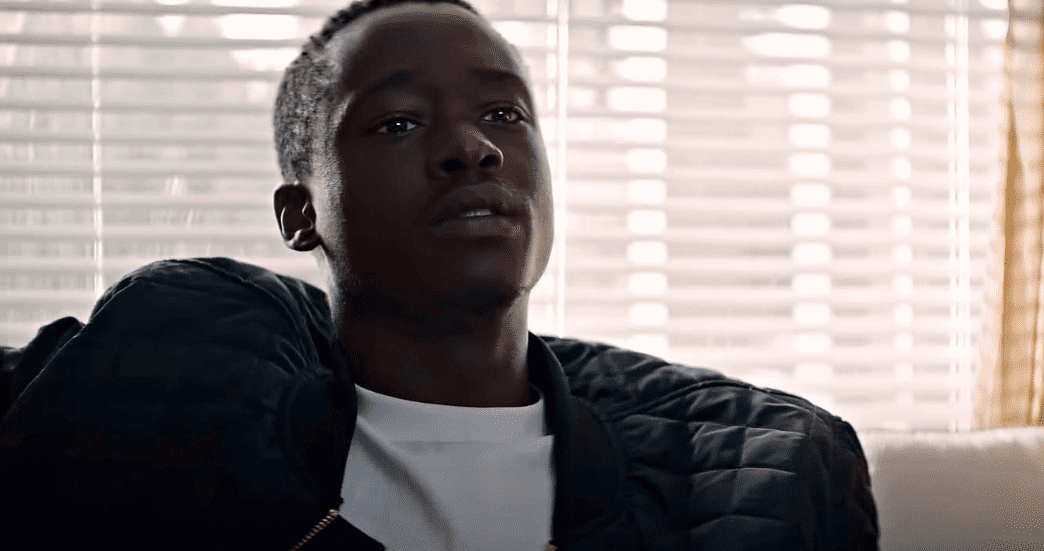
The movie shows us the hostility between Delanda and her son Jah, not just with harsh comments but with equally scathing realities as well. When asked, how it was like playing the role of Jah's mother knowing the abuse he went through and having experienced it with him, Jenrette said, "It was really challenging and really heartbreaking - because understanding that this was not the life that she wanted to live, but because of her circumstances or lack of availability to certain resources, she did the best with what she had. Unfortunately, it wasn't enough to keep her son out of going through the same cycle that his father had gone through." The film delves into the abuse that Jah faced as a young boy, and how his mother reacted to those situations the best she could. Jenrette revealed that she "filtered everything through her [Delanda's] eyes" and this was a story she wanted to tell.
There is a heartbreaking scene early on in the movie that shows young Jah being beaten by his father, JD. His mother, Delanda does stand up for him but JD offers an explanation that stuck with us: "It's dog eat man out there if he don't learn that in here, he ain't going to make it," JD tells Delanda. Jenrette spoke of how that even though Jah ended up in jail with his father, for JD, that statement held true. We were shown the realities of communities as the movie goes deeper into inner-city life revealing the lack of opportunities that are available for its residents. "I think it [the movie] speaks greatly to the African American community and the lack of resources or help that these people in certain communities just don't have access to. I think it starts with the parents and then their parents and their parents, and it's just kind of a generational curse that trickles down from the top, and then it's difficult to break," said Jenrette.
While the movie didn't give us a narrative on Delanda's past, Jenrette created one for her while playing the role. She explained saying, "The backstory that I created for her [Delanda] is that she gave Jah what she had, to give. She didn't necessarily come from a family that was well off and well educated, she did the best with what she had. She knew that's not how she wanted to be, but she didn't have the resources to get out of the hole that she had already been thrown into. It wasn't a hole that she dug herself." Jenrette said that she felt like Delanda wanted to help her son to higher ground, but didn't know how to do so herself.
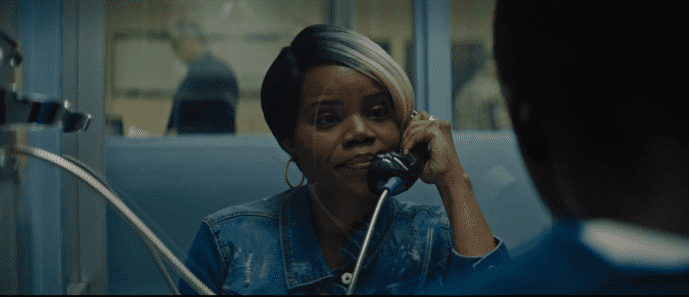
While JD seemed like the cruelest out of Jah's parents, some questioned if Delanda was excusing her part in Jah's upbringing when she visited her son in jail. Jenrette said that while she sees how that scene can be perceived as Delanda evading responsibility or delivering excuses, she thinks that it was "her [Delanda] apologizing, asking for forgiveness for her shortcomings but also trying to get him to understand that it wasn't all her fault." Jenrette said, because she had judged Delanda in the beginning, she tried to "sit in her to understand where she was coming from."
Jenrette further tells us about a moment that didn't make into the movie but was powerful enough to have shaken her. In the scene where Delanda brings her new boyfriend to get Jah out of jail, she tells her son "you're just like J D," and tells him she was done with him. " It was challenging choosing my man over my son and that scene was really difficult to kind of go through knowing that my son is broken, but I'm broken too. Instead of choosing him, I chose my man. There was another scene that didn't make it in the film that we had where Joe, the director, who was absolutely amazing, was just telling me to just go in on Jakhor and just let him have it. I remember just letting it rip on Jakhor and after they yelled 'cut', I had to take a moment because I had gotten so worked up physically and just having to talk to my child that way was hurtful."
Jenrette explains that the scenes where Delanda says "you're just like J D," (at the police station when she bails Jah out of jail) and "we did a lot of stuff wrong for bringing you into this world" (Delanda says this to Jah when she visits him in jail) were where the character really clicked for her. "I feel like it was those two things that really kind of helped me to understand the psyche of this woman and the things that she had to deal with and go through and the struggles that she had to face, the demons that she had to face within herself," said Jenrette.
After giving us a deep insight into the mind of a mother who lost her husband and son to systematic racism and a prejudiced system, Jenrette talked about memorable moments on set. She especially gushed about Wright revealing that he has been one of her favorite actors for a very long time. Jenrette explained that a few years ago, she had written 'thank you' cards for people that she admired and wanted to work with - Jeffery Wright was one of those names. "I had been carrying these cards around, and so when I was presented with the opportunity to work with Jeffrey Wright, I was so extremely excited that I would be able to give this man this 'thank you' card that I have been carrying around for four years or so," said Jenrette.
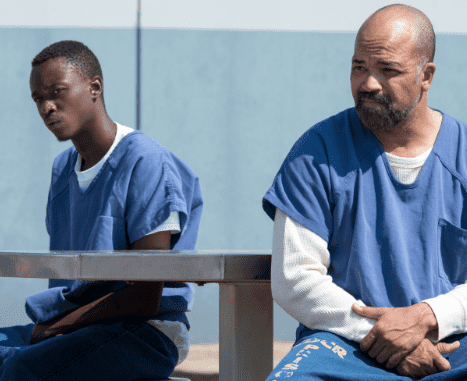
On the last day, the two were to shoot together, Jenrette had given her card to Wright who told her of an experience that he had with his favorite actor and what the actor said to him kind of mirrored what she had said in her thank you card. "For me, that was just such a full-circle moment that I not only got to work with him, but I got to share with him how much his work meant to me," said the actress.
Delanda gives us an excellent portrayal of reality as Jah's mother and brought substance to a character that had no other choice but to be strong and harsh to get through life. Jenrette says that she hopes people take away a moral lesson from the movie to 'stop judging'. "People are dealing with things in their lives that were put upon them. And Martin Luther King had talked about how we as black people are told to pull ourselves up by the bootstraps and it's like, but I don't even have the boot. You don't even give me the boots. I have to fight to get the boots. And then once I get the boots, then I have to try to pull myself up after I've been buried under all of the injustices that I've had to face. And so I think for me, I had to check myself on that and the one thing that I want people to take away from this is to stop judging people," said Jenrette.
As for her next steps, Jenrette is working on a play about Betty Shabazz, the wife of Malcolm X and Coretta Scott King, the wife of Martin Luther King Jr. "Oftentimes when we hear of them, we think of them as the widows of Martin Luther King and Malcolm X. We don't think of them as full-bodied women that they were and the lives that they had before they married these amazing men," said Jenrette. While the play was unable to make its debut due to the Covid-19 pandemic, Jenrette said she hopes to get it out sometime next year.
'All Day and a Night' is available to stream on Netflix.




